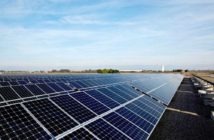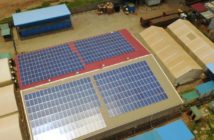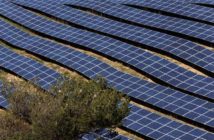Hailed as the next green energy leader in the sun-soaked Mediterranean, Morocco has been taking steps towards reaching a 40 percent renewable mix by 2020, essentially doubling even Europe’s clean energy goals. However, figuring out just how a country with little in the way of domestic energy reserves and rather unsustainable public spending obligations is going to pay for it all has remained a sticking point for all concerned.
The last few months have done little to remedy this situation. To the north, the country’s main trading partners and potential investors continue to struggle with a seemingly endless economic crisis. Closer to home, government spending has continued to rise in step with efforts to curb the kind of growing public protests that led to challenges to the government in Tunisia, Libya and Egypt. Taken with a nation-wide drought, the situation has left Morocco posting a modest 2.5 to 3 percent growth rate for the year.
Enter Saudi Arabia. This week saw an anonymous government source tell Reuters that Morocco state officials had all but decided that they would team with Saudi Arabia’s International Company for Water and Power (ACWA) to kick start what amounts to the first stage of the country’s sprawling solar plan outside the southern town of Ouarzazate – a 160 MW component of a 6 GW overall renewable strategy planned over the next eight years. The public-private effort will cost about $500 million and include an agreement with ACWA to handle financing, design, construction and maintenance of the plant.
The broader plan, which was initiated in 2009, promises 2 GW from wind power (300 MW are already installed) and 2GW from a planned 5 solar projects across the country, amounting to about 18 percent of Morocco’s energy demand, with construction planned between 2014 and 2020, according to a Saudi Gazette report. The remaining renewable options will come from hydro and biomass projects.
While an official government announcement on the project funding and partnership has not been offered, the reported step forward is welcome news for the country’s green energy advocates, both at home and those associated with the German-led Desertec initiative. While the far-reaching Desertec renewable energy project includes green energy projects from Tunis to Cairo, Morocco has emerged as the program’s best bet for a successful anchor project thanks to their early adoption and support for solar and wind efforts.
Still, there is a long road ahead for the North African nation’s renewable energy dreams, not least because of recent increases in government spending green advocates would have rather seen go towards project and infrastructure development. Over the past year, public program spending from Rabat has increased in response to growing political protests, with new subsidies and job efforts aimed at calming potential opposition movements. While early efforts combined with elections and pledges for constitutional reforms helped ease the tension, sustaining such spending with minimal natural resource revenue is becoming an increasingly difficult task to keep up.
Dependent on exports for much of their energy needs and largely free of domestic oil and gas resources, Morocco launched their 2009 renewable energy program as a part of a diversification effort that has included traditional projects and beefing up the country’s role as an energy transport hub. Looking beyond green options, Morocco has also stepped up traditional energy license offers as well as exploring offshore drilling efforts, though there is far less confidence in that sector’s potential. Earlier this year, Tangiers opened an expanded storage facility for oil, gas and other refined materials aimed at the more than 70,000 ships that pass through the Strait of Gibraltar each year.
Christopher Coats, Contributor
I write about energy and policy issues facing the Mediterranean region







